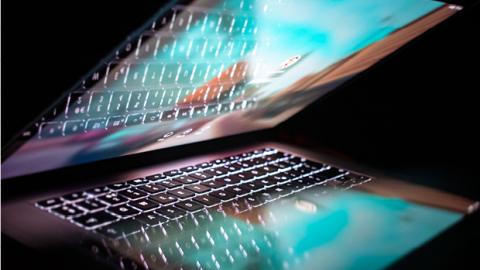Now that it looks like Elon Musk really will be buying Twitter, it’s time to talk about what this sale of the social media platform used by one quarter of Americans to the world’s rich man, really means.
It may mark the beginning of a revolution in how social media protects its users, and the data they bring with them, if Musk does this right.
Much of the focus right now is whether Musk will clean up Twitter’s obvious problems such as its profusion of bots (Musk has promised to wage war on bots when he takes over), but also whether Twitter has become too politicized for its own good, let alone its users. Critics point to the platform’s banning of President Trump; its suppression of the Hunter Biden laptop story; along with claims that Twitter systematically weeds out conservative voices with the practice known as shadow banning (Twitter denies it is doing this).
Elon Musk has described himself as a “free speech absolutist.” That’s the kind of absolutism I had urged Marc Zuckerberg to embrace back in 2018, when Facebook came under heavy fire from both left (for its alleged role in Trump’s 2016 election) and from the right (for the same censorship practices that plague Twitter). At meetings with Zuckerberg and his staff I pushed them to stand up for Facebook as the nation’s bulletin board, a platform for the completely free exercise of free speech (barring promoting criminal activity or directly endangering public safety). I even suggested partnering with Hudson Institute to “provide a public forum for educating the public and policy-makers in Washington on the most pressing issues arising from the advent of new, potentially disruptive technologies,” as I put it in a memo for Zuckerberg, “while also providing a venue where Facebook and other social media can show how they see their essential role in the evolution of our high-tech future.”
Although Zuckerberg turned down my offer, the need for such a dialogue with social media and Big Tech is more needed than ever. Elon Musk’s purchase of Twitter could serve as a way to promote not only the value of free speech, but the safety of the technology itself.
Twitter handles some 500-700 million tweets a day, which adds up to roughly 12 terabytes of data every 24 hours. That’s fairly small compared to Facebook’s 500 daily terabytes, but that’s still a mountain of data about users and their followers that a savvy AI operator can turn into a Big Data bonanza. I’ve written in this space about the clear and present danger TikTok poses as a Chinese company in terms of data from its 85 million users falling into the wrong hands. That danger also hovers over Twitter.
This threat takes on special meaning after Twitter’s data breach in July, which directly affected 5.4 million users. In fact, according to the website Sprout Social, “massive amounts of data can be collected from a single tweet,” not only information about active users but about everyone else who views their tweets. That’s a treasure trove of data for anyone able to hack into the Twitter data base.
Now, in addition to providing opensource algorithms to take the mystery out of how Twitter oversees its users, Musk has expressed interest in moving away from the heavy reliance on advertising for revenue and moving to subscription series, instead. That offers the opportunity to move to a more decentralized version of Twitter, and using blockchain technology both to protect and authenticate users.
Using this model, every Twitter subscriber would become part of a network or ledger of activity shared with every other subscriber or user, but stored nowhere else. That means there is no centralized database for a hacker to corrupt—or for a would-be censor to impose his or her political preferences. The distributed ledger allows users to preserve their anonymity, while also solving the problem of authenticity—since every subscriber can track and verify every tweet and exchange inside the blockchain network.
Blockchain sometimes gets a bad name because of its associations with cryptocurrencies. But experts predict blockchain-type technology will soon revolutionize the health care industry as well as the financial industry, by protecting patients’ and clients’ records within a constantly updated but decentralized accounting system. Blockchain is being touted as the potential solution to the Department of Defense’s data security and logistics challenges.
So why not social media, as well? Adopting the blockchain model also opens the door to making that blockchain technology quantum-secure, by installing post-quantum cryptographic solutions that can protect against future quantum computer assault.
Elon Musk likes to think of himself as a pioneer, and prophet of the future. His purchase of Twitter can offer that opportunity-not just for reasserting the importance of free speech but also for showing how we can protect the most precious commodity of our high-tech future, namely data itself.

















